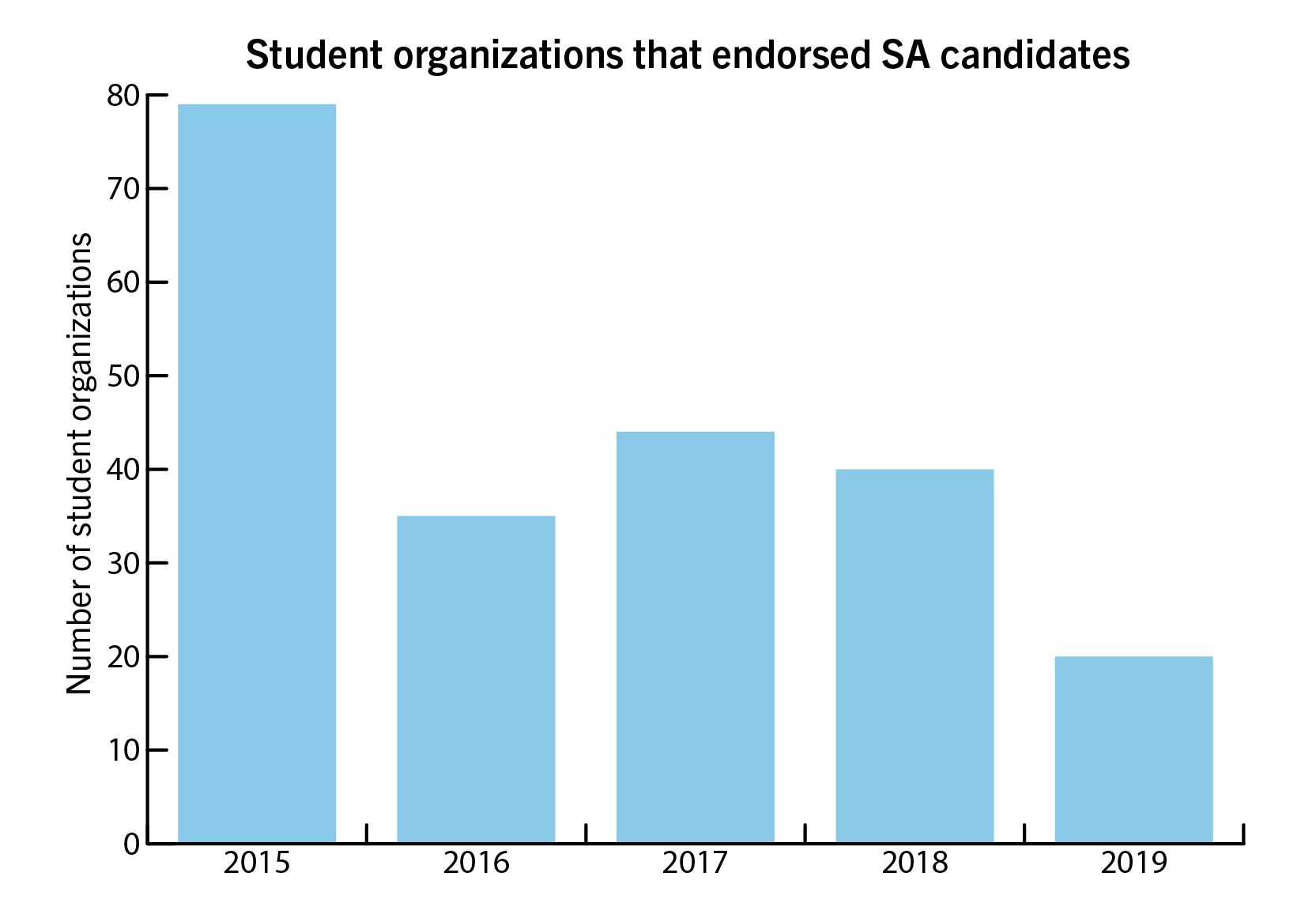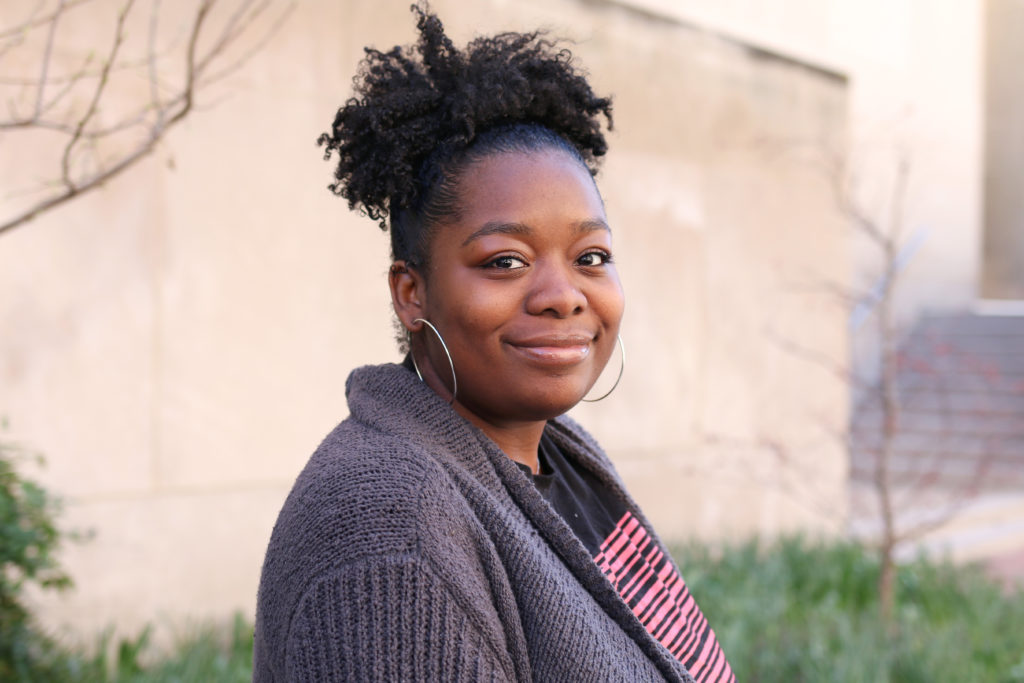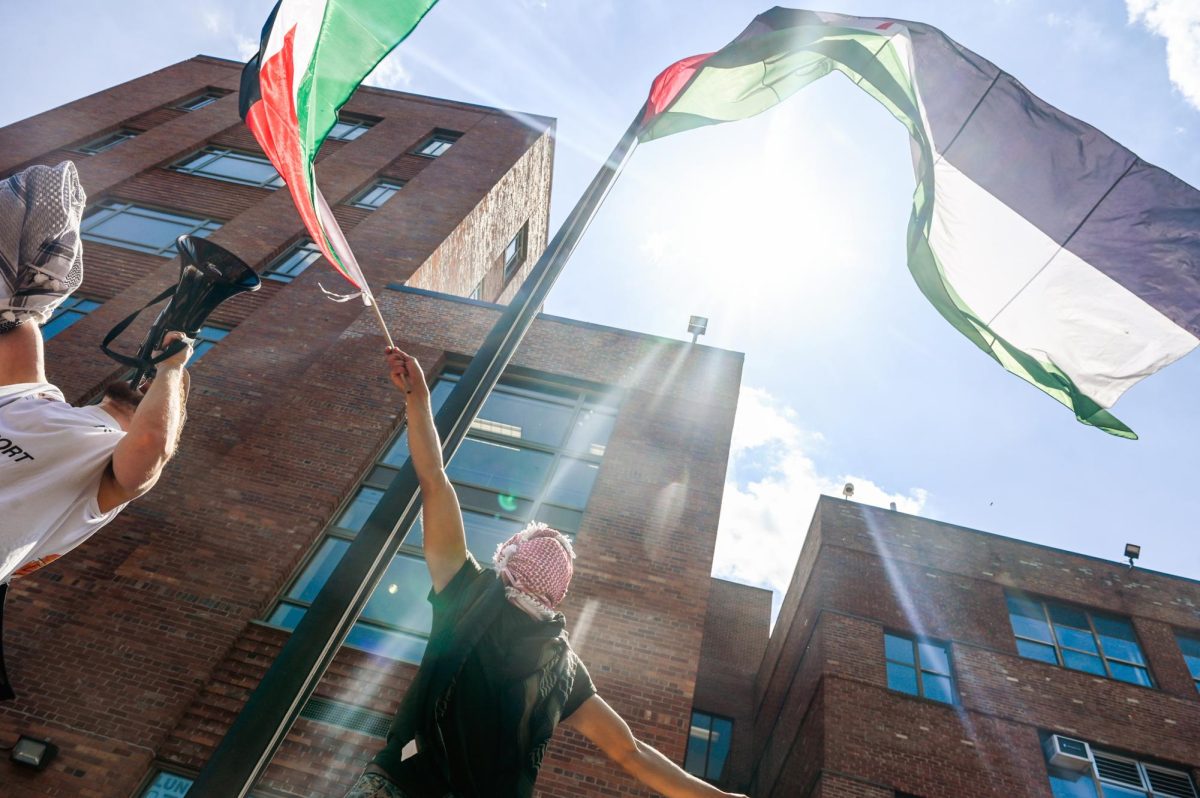Candidates vying for the Student Association’s top spots this year received the fewest number of endorsements in recent history.
About 20 student organizations endorsed candidates for SA president and executive vice president ahead of the election last week, about 15 fewer student groups than in 2018, 2017 and 2016. Student leaders of organizations that have endorsed candidates in past SA elections but did not this year said they lacked the time to hear out candidates or their executive boards could not come to a consensus on who to back.
Over the past three years, the number of student organizations that chose to endorse candidates has fluctuated from about 30 to 40. In 2015, more than 70 student organizations endorsed one of the three candidates for president, and more than 30 supported one of the three candidates for executive vice president.
Naja Nelson, the president of GW’s NAACP chapter, which endorsed SA President Ashley Le and SA Executive Vice President Ojani Walthrust in last year’s race, said that unlike past years, her organization did not endorse a candidate this year because she wanted members to make their own decisions. She said the student group instead attended listening sessions where the candidates were present so members could hear out their platforms.

Olivia Columbus | Staff Designer
Source: Hatchet analysis
“We ultimately decided to do something different and support students choosing for themselves,” she said in an email.
Emily Bailey, the president of Alpha Phi Omega, a gender-inclusive service fraternity that endorsed SA presidential candidate Imani Ross last year, said members of her organization have been focusing on the organization’s own internal matters and could not coordinate schedules to speak with SA candidates.
“We only endorse candidates if everyone from that particular race is able to come speak to us at once,” she said in an email. “It was really just a timing issue.”
Yasmine Sadoudi, a member of Jewish Voice for Peace, said the student organization reached out to every presidential and executive vice presidential candidate but only met with SA Sen. ShanTorrian Underwood, CCAS-U and a candidate for SA president, and Quentin McHoes, a candidate for executive vice president.
She said the organization, which also did not endorse a candidate last year, decided against backing a candidate this year because members of the group did not have an opportunity to hear from all candidates in the race. Two other registered candidates ran for president, and one other student ran for executive vice president.
She added that none of the candidates openly favored divesting from companies that allegedly contribute to Palestinian suffering – a hotly contested topic in the SA in recent years – which deterred the group from coming out in support of any one candidate.
“We take pride in our organization’s diversity of opinion on GW politics and believe that our members should have the opportunity to critically analyze the policies and platforms of each candidate,” she said.
Nicole Cennamo, the SA’s vice president for academic affairs and a candidate for SA president, said student organizations might have been less motivated to endorse candidates this year because of scandals that have tainted the past few SA elections, leading student groups to revoke endorsements.
Last year, four student organizations rescinded their endorsements of SA executive vice presidential candidate Brady Forrest after he was accused of anti-Semitism late in the campaign. The year before, SA presidential candidate Lande Watson was disqualified from the election amid allegations that she and her campaign team harassed, stalked and intimidated another candidate.
“I think this year, people are probably a little scarred by that,” Cennamo said.
This year’s SA elections also encountered last-minute drama last week when a write-in candidate entered the race for SA president two days before polls opened. The presidential election was pushed to a runoff Thursday after no candidate reached the 40 percent threshold needed to secure the position.
SA Sen. Amy Martin, ESIA-U and the executive vice president-elect, also said student organizations may have been wary of endorsing a candidate in anticipation of SA election drama. She said that while fewer student organizations announced endorsements than in years past, candidates should have still reached out and held conversations with members of student groups to promote their ideas.
“What’s more valuable is the time that you spend talking to student organizations,” she said. “Even when organizations ultimately decide not to endorse, they are representative of a passion or a group of students that have a perspective on this campus.”
Gabby Pino contributed reporting.





